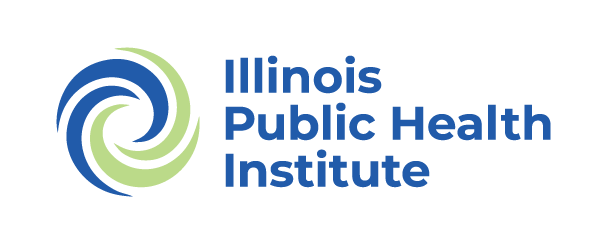ABOUT US
Mission, Vision, and Values

Our Mission
The Illinois Public Health Institute collaborates to advance health justice through equitable policy, systems, and institutional change.
Our Vision
All people and communities have a fair and just opportunity to be healthy and thrive.
Our Values
Community Power and Expertise
We believe that communities who are most impacted by systems of inequity have the expertise needed to create and sustain solutions that support their optimal health and wellbeing. Our work seeks to promote community capacity to address power imbalances within policies and systems.
Social Justice
We believe that the equitable distribution of resources, opportunities, and privileges in society are critical to attaining optimal health and wellbeing. Our work seeks the equitable distribution of resources and opportunities to correct for past inequities and advance health justice.
Equity
We believe that inequities in health outcomes are unjust and preventable, and that no one should be disadvantaged from achieving their optimal health due to race, ethnicity, gender, socioeconomics, or other socially mediated factors. Our work seeks to center those communities most impacted by inequities.
Sustainable Impact
We believe that solutions at the systems level are most likely to be sustained after the project or program has ended. We combine a systems level approach with continuous monitoring and improvement, and view missteps as an opportunity to learn and improve our efforts for the future.
Collaboration
We believe in the power of partnerships to create an impact that’s greater than what would have been created alone. We therefore seek out and welcome opportunities to collaborate across sectors.
Servant Leadership
We believe that the development, empowerment, and growth of our individual team members will support our collective success. We therefore focus our interactions on the core tenants of servant leadership which include service to others, a holistic approach to work, promoting a sense of community and teamwork, and shared decision making.


Stay Up-to-Date with IPHI
Sign up for our newsletter for news, resources, insights, and more.
